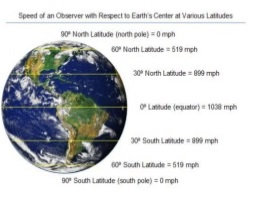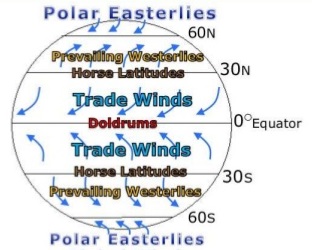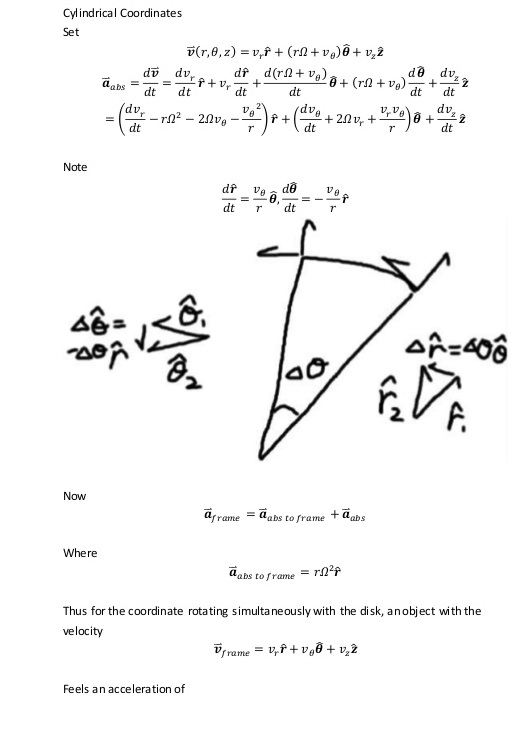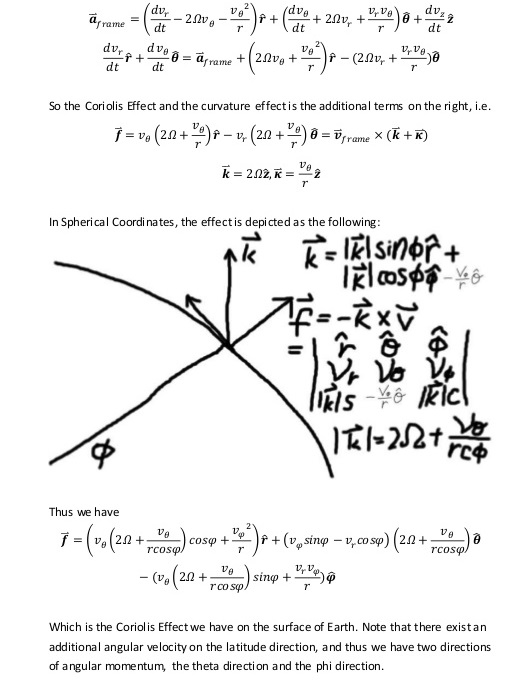In Coriolis effect a mass moving in a rotating system experiences a force (Coriolis force) acting perpendicular to the direction of motion and to the axis of rotation. On the earth, the effect tends to deflect moving objects to the right in the northern hemisphere and to the left in the southern and is important in the formation of cyclonic weather systems.
So we can say that Coriolis force is an inertial force (fictitious) that acts on objects that are in motion relative to a rotating reference frame. Deflection of an object due to the Coriolis force is called the Coriolis effect. This is caused by the rotation of the rotating object.
This effect was discovered by Gustave Gaspard Coriolis using just a pen, paper and mathematics, he figured out why the wind turns, curves, and goes around in circles. He published a paper in 1835 on the energy yield of machines with rotating parts. Coriolis referred to this force as the “compound centrifugal force“ and by 1920 it has been named as “Coriolis force“.
Examples of Coriolis Effect
Meteorology & Oceanography: The most important impact of the Coriolis effect is in the large-scale dynamics of the oceans and the atmosphere.
Ballistic Trajectories: The Coriolis force is important in external ballistics for calculating the trajectories of very long-range artillery shells.
Coriolis Effect on Earth
An object moving above the Earth in northerly or southerly direction away from the equator will have a greater eastward velocity than the ground underneath, and so will appear to be deflected in relation to the rotation off the Earth.
Deflection is towards Right – Northern Hemisphere
Deflection is towards Left – Southern Hemisphere

Coriolis Effect on Global Winds 7 Formation of Cyclone / Hurricanes
If a low-pressure area forms in the atmosphere, air tends to flow in towards it, but is deflected perpendicular to its velocity by the Coriolis force.
The direction of movement of air around a low-pressure area in Northern Hemisphere is Counter Clockwise and in Southern Hemisphere is Clockwise.

Coriolis Effect on Oceanography
A Ocean Gyre in oceanography is any large system of circulating ocean currents particularly those involved with large wind movements formed due to the Coriolis Effect. The Coriolis effect deflects surface currents just like it effects the wind. It deflects currents north of the equator to the right and currents south of the equator to the left.
Coriolis Effect on Ballistic Trajectories
The Coriolis effect causes Coriolis drift, both horizontally and vertically. The deflection in:
Northern hemisphere —> right
Southern hemisphere —> Left
For eastward shots —> Upwards (Eotvos Effect)
For westward shots —> Downwards (Eotvos Effect)
Ballistic projectiles with long flight times it is a significant factor in calculating the trajectory.


Discover more from Electrical Engineering 123
Subscribe to get the latest posts sent to your email.

